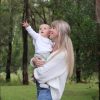Your Cystic Fibrosis
Information Centre
This website is designed to inform and educate adults who either have or know someone with cystic fibrosis (CF). Learn about various topics through our broad range of articles, conversations and personal stories!






